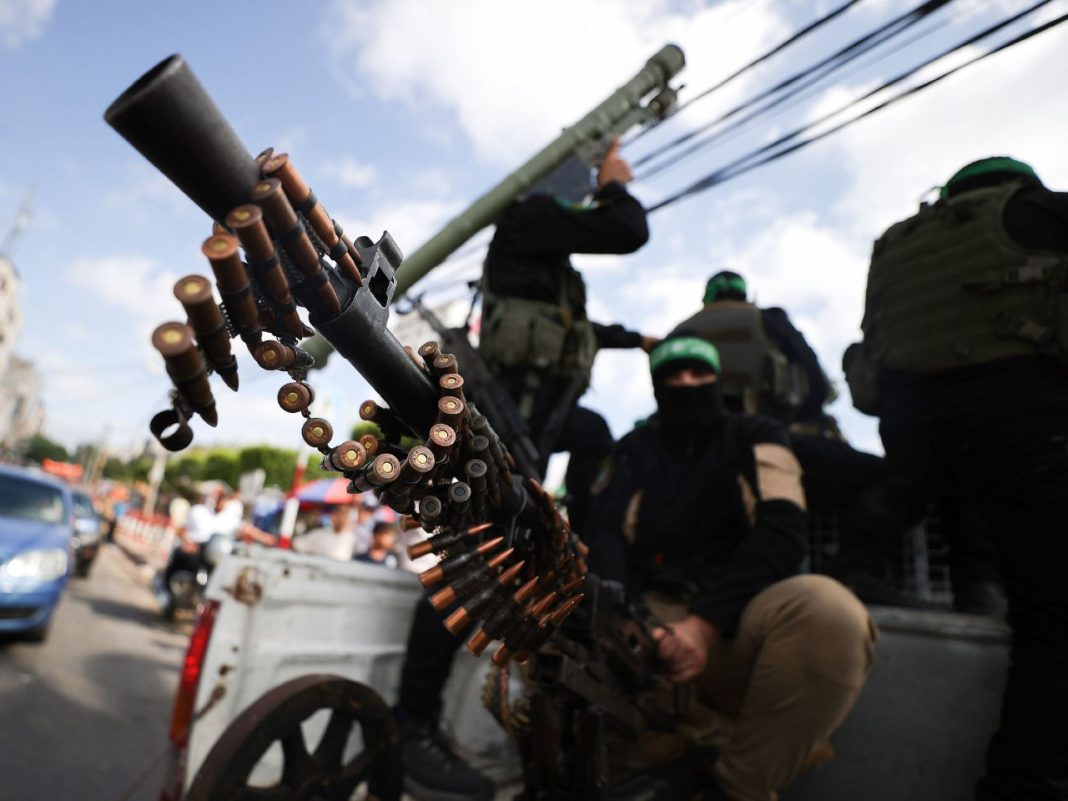Blinken’s remarks on Tuesday at The Atlantic Council in Washington DC provide a rare window into US intelligence assessments of Hamas’s strength, which is likely to ruffle Israel’s positioning after a potential ceasefire, given its stated objective of “total victory and the eradication of Hamas”.
While Israel succeeded in decapitating Hamas’s leadership in Gaza, Lebanon and Iran, Blinken suggested that the group remains a power in the Gaza Strip and could complicate plans for post-war governance of the enclave.
Blinken’s speech comes in the final countdown of the Joe Biden administration’s days in office. It was unusually forthright and laced with criticism of the US’s ally.
“Israelis must abandon the myth that they can carry out de facto annexation without cost and consequence to Israel’s democracy,” Blinken said, adding that Israel is expanding settlements and nationalising land “at a faster clip than any time in the last decade” and that “violent attacks by extremist settlers against Palestinian civilians have reached record levels”.
At the event, Blinken unveiled his plans for post-war governance of Gaza, but they were overshadowed by his assertion that he would have to hand them off to President-elect Donald Trump’s administration after the 20 January inauguration.
The Donald Trump transition team has made few statements on the incoming administration’s vision for Gaza and the occupied West Bank. However, Trump’s nominee for ambassador to Israel, Mike Huckabee, has previously stated “there’s no such thing as a settlement”.
Blinken said Israel would “have to accept reuniting Gaza and the West Bank under the leadership of a reformed PA (Palestinian Authority)” and “must embrace a time-bound, conditions-based path toward forming an independent Palestinian state”.
He added that the Biden administration wants the PA to invite “international partners to help establish and run an interim administration” in the demolished enclave. He also said an interim security mission would comprise forces from “partner nations” and vetted Palestinian personnel.
Blinken spent months working on the plan for post-war Gaza governance. His speech comes as the Biden administration is already being overshadowed by Trump, whose return to the White House appears to have injected fresh urgency into the ceasefire negotiations.
Blinken’s speech was also interrupted by a heckler, who screamed over him for nearly a minute, describing him as “bloody Blinken, secretary of genocide”.
The draft of a ceasefire agreement circulating widely, which a senior western official told MEE could be agreed upon by Friday, appears nearly identical to those introduced in the summer and fall of 2024.
Israel has long insisted that a deal must allow it to restart the war when it wants, while Hamas says it will only release the hostages in return for a permanent end to the fighting.
Israeli news site Haaretz reported on Tuesday that Trump’s incoming Middle East envoy, Steven Witkoff, pressured Netanyahu into the deal, pulling him into his office on Jewish Shabbat to agree on the proposal, which was the same one he rejected previously.
Israeli media and sources close to the talks told AFP that the first phase of a deal would see 33 Israeli hostages freed. In contrast, two Palestinian sources close to Hamas said that Israel would release about 1,000 Palestinian prisoners in exchange.
An Israeli government official told AFP that “several hundred terrorists will be released” as part of the first phase of the deal.
Israeli media also reported on Tuesday that under the proposed deal, Israel would be allowed to maintain a buffer zone inside Gaza during the implementation of the first phase.
Hamas said it hoped for a “clear and comprehensive agreement”, adding it had held consultations with other Palestinian factions and informed them of the “progress made”.
